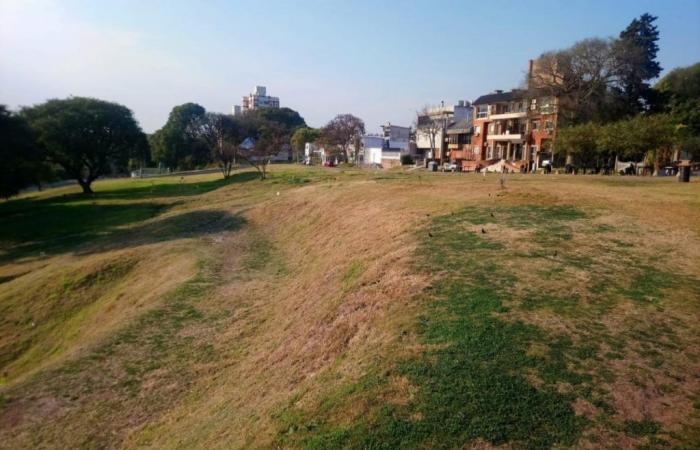By Darío Dayub
In recent days we have suffered in Paraná, regarding the lot located on the corner in front of Patito Siriri, the “National Art of Unresolved”, which overwhelms us so much in Argentina; and I believe that citizens deserve to at least be informed correctly.
In an unclear way, Messrs. Jose Maria Armarla and Guillermo Pinto manage to register as owners of the entire land that, like a balcony, was created in front of Patito Siriri a few decades ago. They decide to divide it into three lots and each assume the respective costs of their lots (one from Armarla – the middle one – and two from Pinto – the corner ones). It seems that Pinto did not pay his share, Armarla sued him and after an intricate litigation he managed to auction off, for a “derisory” sum, one of his two lots to collect; and Pinto suspiciously allows it with his inaction.
That’s it, the situation picture.
Now, it also seems that the municipality “alarmed and scared” by such a situation decides, now quickly, to approve but only for that lot what was so much required for the entire land for years; that is, manage the expropriation through the mechanism of Decree Law 2577/12. With which the municipality can declare a property of Municipal Interest due to its Public Utility and Subject to Expropriation; and then with said ordinance, the mayor manages before the provincial EP, the submission of the corresponding bill for this purpose, since only the province can expropriate.
But here are some “details” that are being overlooked: 1.- The Decto procedure. 2577 -in its Pto.2, Inc.1.-c)- establishes that the municipality must also accompany with such declaration “the Municipal Ordinance or Decree that commits the relevant financing to face the expenditure”; an issue that was alleged to be unavoidable and of “impossible compliance” since the previous administration – which continues – to not address the project, allowing it to lose parliamentary status after the overvaluation made by the municipality itself. But this time, however, the approved ordinance says nothing on the subject, leaving the perfect excuse for provincial rejection. 2.- Both the Auction and the Expropriation are “Forced Sales”. But with the essential differences: while at the auction the purchase is certain, immediate and perhaps at the lowest possible price, in export it is uncertain because it depends on dozens of political wills, long-term due to its cumbersome and complex procedure, which It can even be judicialized, and at a higher value since it is almost the market value: Why then would the municipality opt in this situation for expropriation instead of going to bid at the auction, seeing it as an opportunity and not necessarily as a problem in itself? same? It is not understood whether or not it is always the municipality who authorizes a construction, regardless of its owner; It doesn’t matter if it’s Pinto or another “So-and-so”.
There may be political speculation on the part of some and legal ignorance on the part of others; naivety and improvisation, or the simple vice of political thread that causes even a certain environmental militancy to get mixed up in all of that. The truth is that they have contributed to that National Art of Unresolved that we suffer so much from, creating a great opportunity for at least one of the lots to be quickly in the hands of the city and at a lower price.
And when it seemed that the disorientation could not escalate any further, a young provincial deputy appears, happily announcing on his networks that he is coming to save the lots from the auction by “giving effect” to the municipal ordinance that calls for expropriation. It appears ignorance, improvisation, disdain or being more attentive to the shock that “the scoop” would cause than to the problem itself and its solution, but I don’t know. The truth is that the project, whose foundations are not read, lacks legal rigor because it ignores the procedure to be followed when the expropriation is carried out for municipal interest. 2577/12, as stated above. He had time to take a few days to better study the issue because the ordinance had not even begun to govern and thus present it well done, under the protection of the provincial Expropriation Law No. 6467/1976 and not to give continuity to the municipal process initiated as it says. that makes. Perhaps he will earn the governor’s gratitude, because in the second article of his hasty project he establishes what the ordinance omits: that the payment for the lot to be expropriated must be made, where appropriate, by the municipality.
Anyway…maybe despite all this, one day the lot will be expropriated and set a precedent. Maybe even if you do everything wrong, something will turn out right. Perhaps the political winds favor the chosen procedure. Don’t know. I only know that the most convenient thing was not done, that they did not resolve it quickly given this unique opportunity and that they have contributed in droves to “perfect” this rare National Art of Unresolving.






